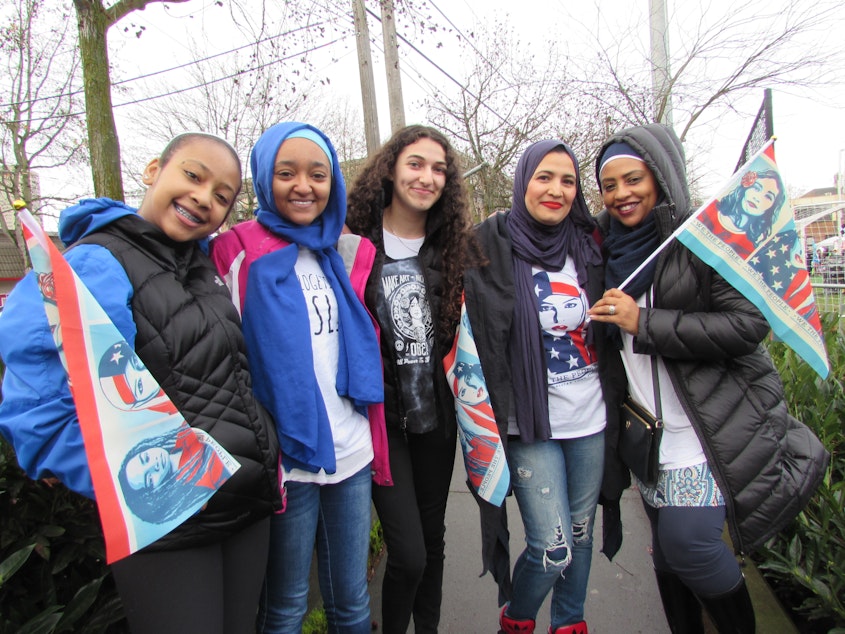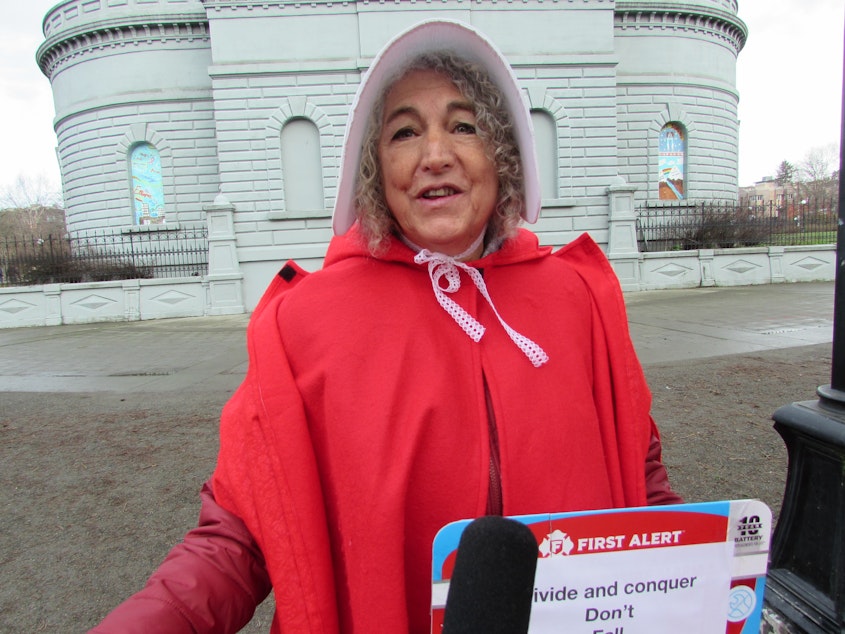In Seattle, women marchers say resist the fatigue: 'There is hope'

As marchers assembled in Cal Anderson park on Seattle's Capitol Hill Saturday, Frances Perry of Seattle was carrying a picture of Ruth Bader Ginsburg, worried that "people are starting to lose energy."
“Clearly this is a lot smaller," she said at the start of the third annual march.
The crowd was just a fraction of the 100,000 people who turned out the day after Donald Trump's inauguration in 2017.
“The intolerance is standard and we’re not even blinking anymore," Perry said. "We have to persist and not let it become something we don’t even notice."
Belinda Moreno and Sabrina Gardner were preparing to march with Indigenous Sisters Resistance. Moreno said the first march in 2017 was unforgettable for her.
"We led the march then, and when we arrived at Seattle Center, people were still lining up to start the march," she said. "It was three miles straight, so it was just an incredible feeling."
She said this year has been marred by rumors of division and news coverage of allegations of anti-Semitism among national organizers, but she doesn't see that in Seattle at all.
“Maybe that’s being put out there to discredit the marches, to make people not show up and to second-guess why we march," Moreno said.
Sabreen Tuku, 16, came from Issaquah with family and friends. “I’m here to represent women – Muslim, Ethiopian, black people — and they want to make a change," she said.
She's attended every year and said the context for the march is always shifting. “Every year is different because every year something happens, either moving forward or backward, where you have more of a feeling of, like, you need to do something.”

Hallette Salazar from Kingston was with a group of women wearing the striking red cloaks and white bonnets of Margaret Atwood's "A Handmaid's Tale," the futuristic novel where she said women are forced by religious conservatives to become "brood mares."
Sponsored
This was her first time attending the Seattle Womxn's March. Before now, "my husband had to represent me, I had to work. I am now retired," she said. "We’re worried about women’s freedom – freedom for our own bodies, freedom of speech. The #MeToo movement is the perfect setting for this."
The park on Capitol Hill was just the first public gathering in a weekend of marches, workshops and Martin Luther King, Jr. Day observances, many geared to progressive political activism.
On Sunday, Indigenous Women planned a rally at 10 a.m. at Occidental Park, and an alternative march was planned starting at Westlake Park, also at 10 a.m.
"There is hope," Reverend Kelle Brown of Seattle's Plymouth Church told the crowd on Saturday, promising them, "in less than two years there will be a new president."




